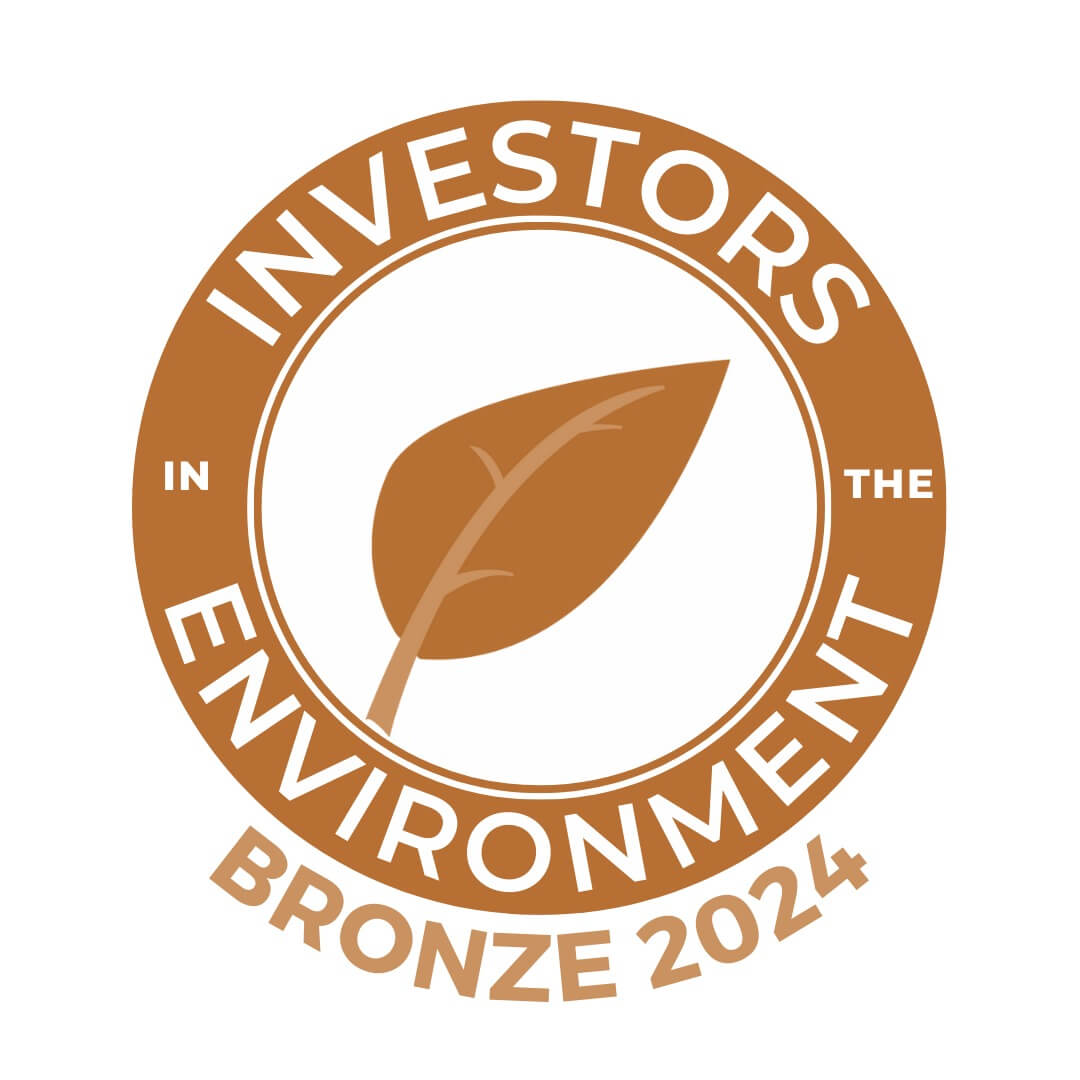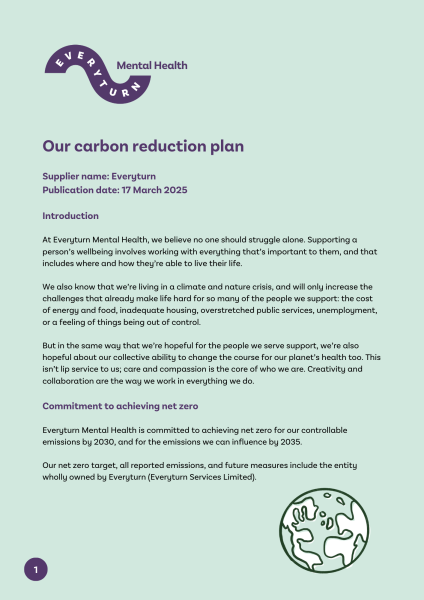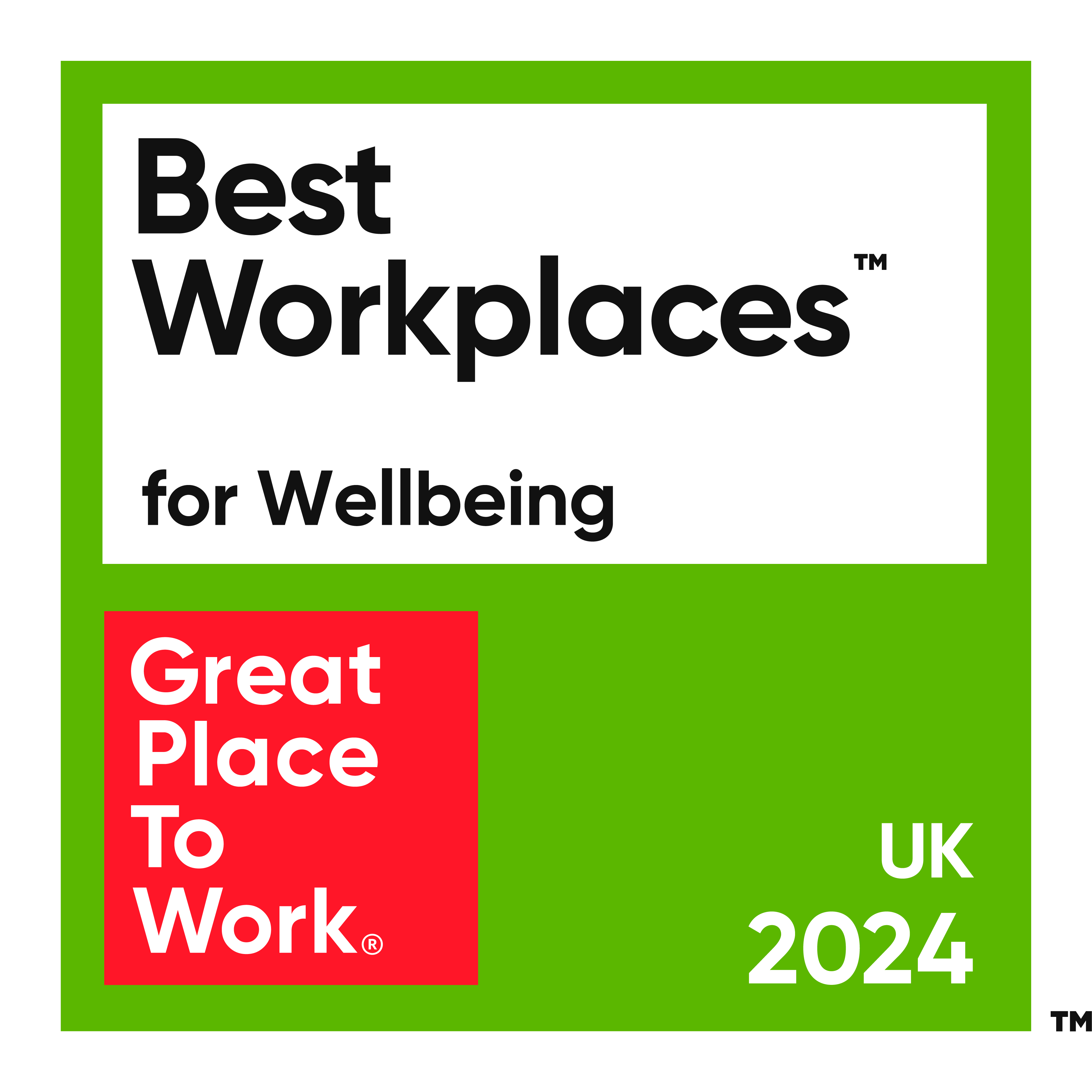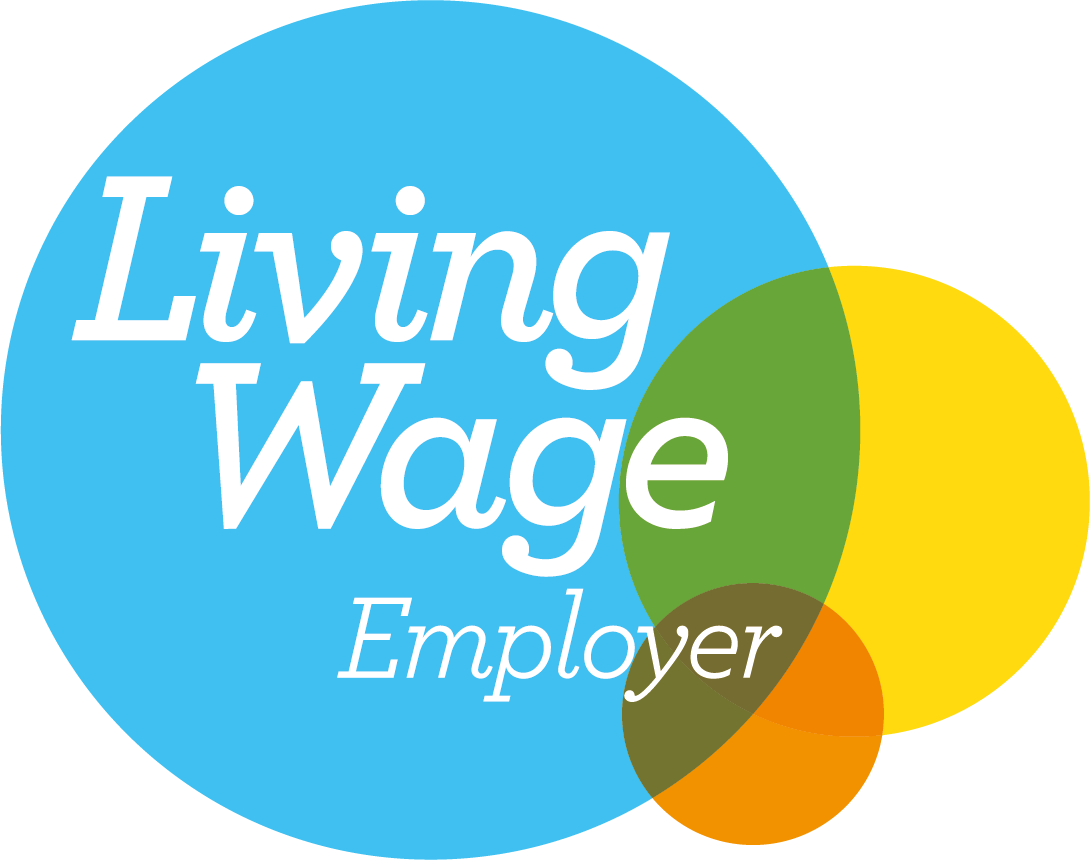Why we're taking action
The climate emergency is also a health emergency. Its effects will increase the challenges that already make life hard for so many of the people we support: the cost of energy and food, inadequate housing, overstretched public services, unemployment, or a feeling of things being out of control.
Through our sustainability programme, we will:
- Reach net zero by 2030 for the emissions we directly control and 2035 for the emissions we can influence.
- Reduce our impact on our planet.
- Improve health conditions for the people we support and our colleagues – now and in the future.
We’re proud to have joined Become Green Together, to be working towards our silver Investors in the Environment accreditation, and to be aligned with the Greener NHS programme.
How we're taking action
We published our latest carbon reduction plan (see link below) in March 2025. By then, we had already:
- Achieved the Investors in Environment (IIE) bronze accreditation, and are working towards Silver with an Environmental Management System (EMS) in place to guide our sustainable operations.
- Enhanced energy efficiency at our residential care home and social housing through heat pump installations, extra insulation, smart controls, and a building management system, alongside upgrades to our green spaces.
- Created our bespoke accredited Carbon Literacy training, aligned with our ICARE values, which is progressing towards bronze certification, complemented by a newly established ‘Green Champions’ network and a climate action calendar for 2025.
- A Green Values Award has been launched for our colleagues, as well as new salary sacrifice schemes, including energy efficiency consultations, electric vehicle leasing, and charitable giving.
- Held a roundtable event with other VCSEs to share common challenges and solutions in achieving net zero targets.
- Reported the baseline carbon emissions of our supply chain and published a new sustainability procurement policy. We are actively engaging with our largest suppliers to support their own carbon reduction efforts.
Here’s what we’re doing next…
- Work toward silver Investors in the Environment (IIE) accreditation.
- Improve our NHS Evergeen assessment score.
- Continue to improve the Environmental Management System (EMS) in place, using our data.
- Carbon reduction, reporting, and compliance with SECR.
- Identify and apply for grant funding to support delivery of the sustainability programme.
- Introduce comprehensive waste management practices across the organisation to align with forthcoming legislative changes (Simpler Recycling Legislation 2025).
- Improve energy management and behavioural change through reporting and monitoring at every service level.
- Further improve our green spaces to increase biodiversity and support mental health recovery.
- Further delivery of our estates decarbonisation programme, aligned to the retrofit hierarchy.
- Attain silver level certification with the The Carbon Literacy Project.
- Further review colleague benefits and increase volunteering leave uptake for environmental and social value projects.
- Encourage and empower green champions to influence change at service level, providing learning and development opportunities to enable this.
- Embed sustainability into whole colleague lifecycle (recruitment, interview, induction, appraisals, development).
- Climate conversations with colleagues.
- Transition to a greener supply chain in line with our procurement policy.
- Embed social value in procurement of goods and service, monitoring and reporting on the impact.
- Create sustainability guidance for colleague-led events.
- Integrate carbon accounting into financial processes.






















